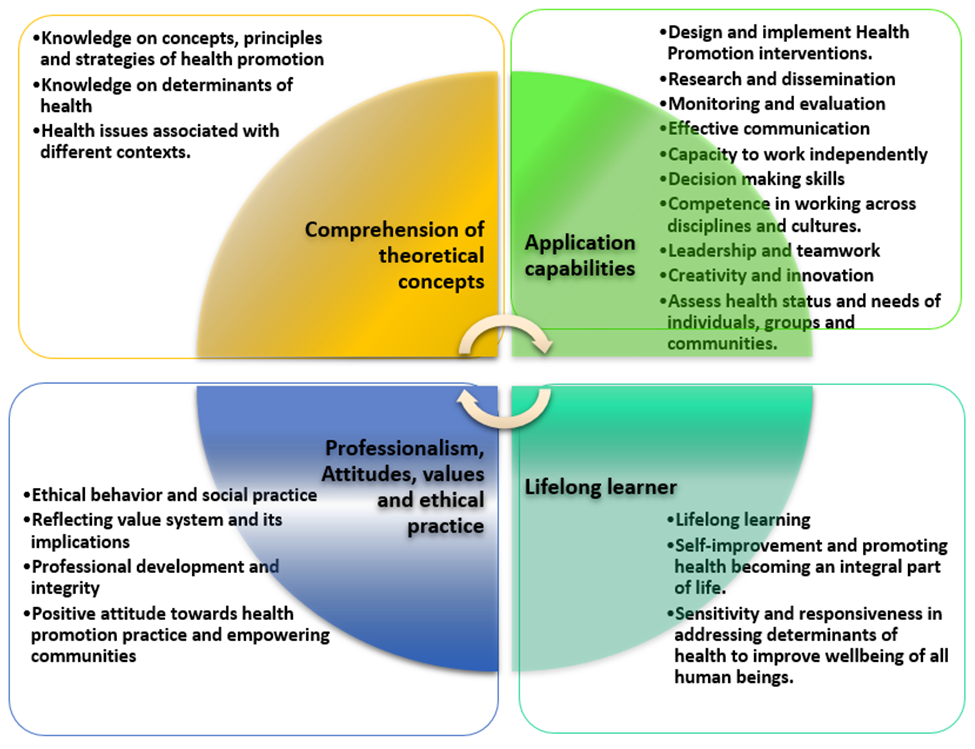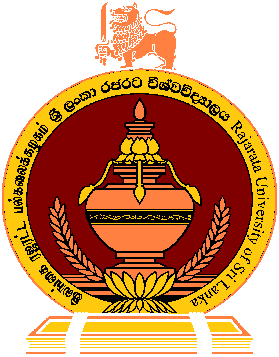Bachelor of Science in Health Promotion Degree Programme
Graduates with a BSc in Health Promotion are able to work independently with individuals, families, groups in range of settings to improve well-being and reduce risks of disease and disability. They are trained to deliver interventions professionally and competently, without the need for any additional postgraduate training. They also have the capabilities of other general science graduates in teaching, conducting research and disseminating results through scientific forums, communicating adequately and life-long learning.
Because of the heavy emphasis in the curriculum on practical interventions in real-life settings they also possess a high level of self-confidence and the ability to communicate effectively with others, solve problems creatively and provide leadership appropriately. Students are trained in working as teams and therefore can work successfully in cooperation with others and recognize their own strengths and weaknesses. These are attributes of value in management and entrepreneurial fields. The curriculum content and ways of learning and teaching ensure that graduates are able to see their practice and theory in the context of global challenges, developments and trends.
Main outcomes of the programme
Program Objectives (POs) signify the anticipations of the department for its students to achieve after graduation. The graduates of B. Sc. in Health Promotion should be able to:
| PLO1 | have a broad knowledge on principles, strategies and practices of Health Promotion and accompanying subjects that enable them to promote,independently and without further post-graduate training, health and wellbeing of individuals and communities. (Theoretical knowledge) |
| PLO2 | assess the health promotion needs of individuals, groups and different communities using appropriate methodologies. (Practical knowledge) |
| PLO3 | design, implement and evaluate the impact of various health promotion strategies, programs and policies. (Fieldwork skills) |
| PLO4 | identify and analyze problems utilizing appropriate evidence and find solutions by displaying good leadership and teamwork (Teamwork and leadership skills) |
| PLO5 | acquire managerial and entrepreneurship skills to address the demands of global trends and health challenges (Managerial skills) |
| PLO6 | promote analytical thinking and evaluation skills to strengthen critical thinking capacities in the families and communities they work with and strengthen research and dissemination of new knowledge (Problem solving and research) |
| PLO7 | develop a wide range of communication skills. (Communication skills) |
| PLO8 | promote ethical behaviour and social practice with integrity throughout health promotion practice. (Adaptability and Flexibility) |
| PLO9 | continually improve their own health and well-being as individuals and as collective (Professional development) |
| PLO10 | develop attitudes and values for empowerment and a secured foundation for self-development and lifelong learning.(Self-development) |
K-SAM Model aligned to Sri Lanka Quality Framework



